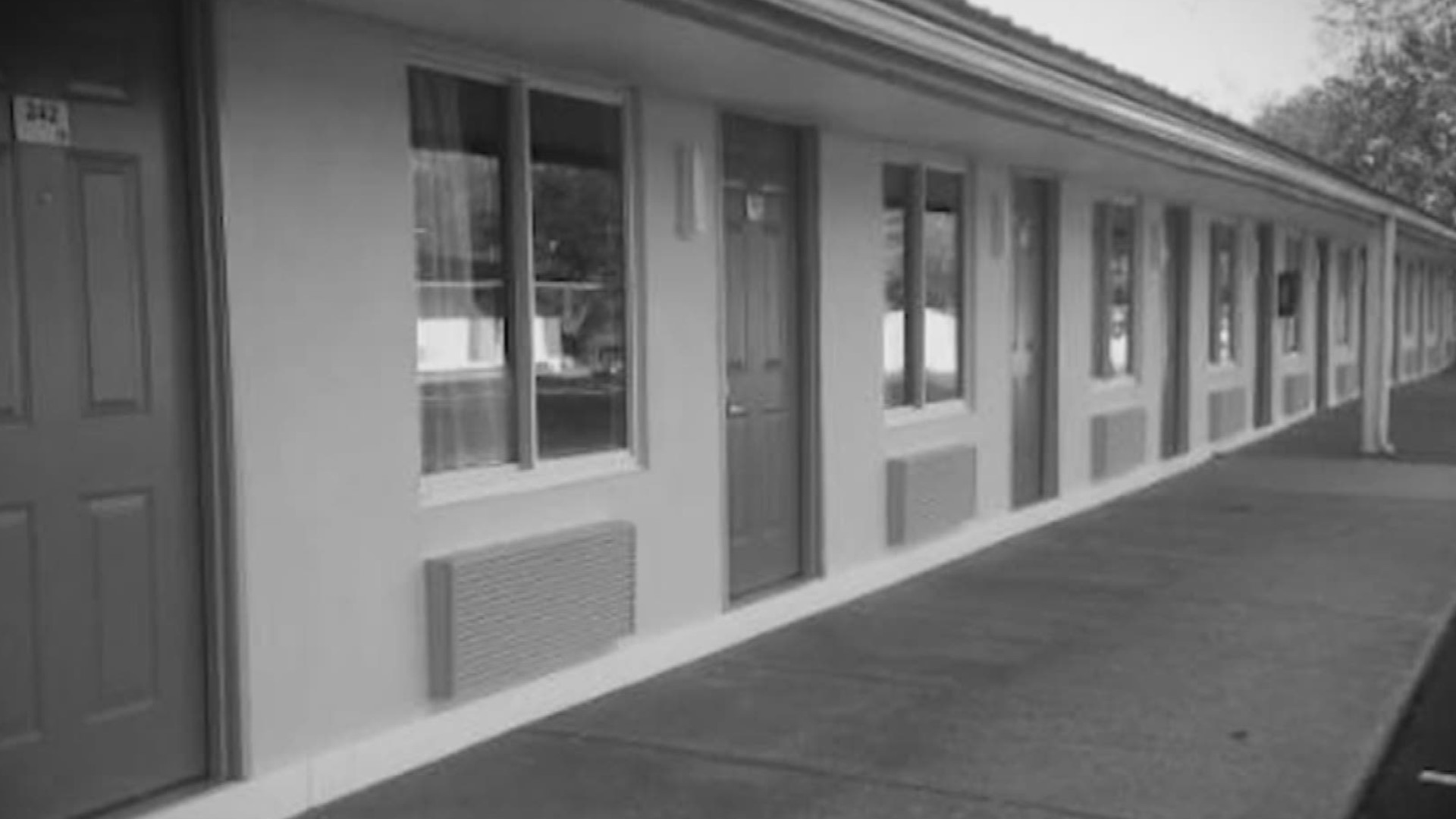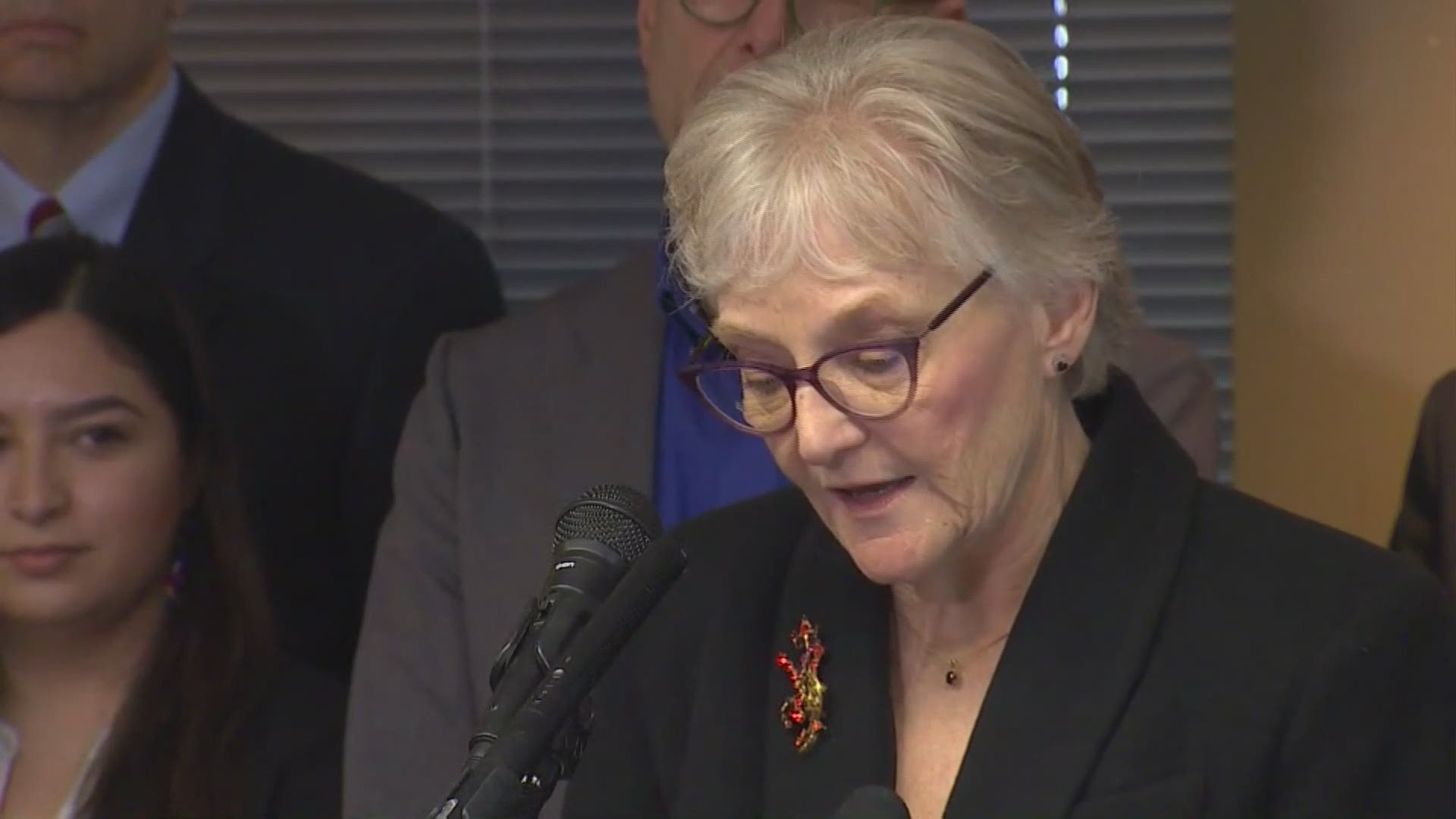The Seattle-King County Public Health agency is using dozens of strategies to respond to the coronavirus risk in our region. That includes transporting people suspected of having the virus to a local motel for isolation when they have no other place to go.
King County Chief Health Officer Dr. Jeff Duchin said this is a little-known practice to the public, but a decades-old public health policy utilized across Washington and the country.
For years, the county has quietly transported people who need to be isolated to ensure public safety to motels that are vetted by health experts. They make sure there is only one, separate entrance into the room, appropriate ventilation and that the facilities do not have lobbies or elevators.
“People probably don’t think that there are folks who might be sick in our community and don’t have anywhere to go. It’s probably not something folks think about a lot but unfortunately, that happens,” Duchin said. “We follow all the guidelines to make sure it is safe. We don’t put anyone in a public location at all if we think there is a risk to the public.”
EMTs who work for the ambulance company that has carried out the transports, American Medical Response (AMR), said they were alarmed to learn of the practice.
“It’s ridiculous,” said an EMT who did not want to be identified.
But officials in King, Pierce and Snohomish Counties all confirmed this is protocol across the state when faced with this dilemma: someone needs to be isolated for suspicion of tuberculosis, Hepatitis A and now coronavirus, yet they don’t have a place where they can be alone. This could happen if a person is homeless, has lots of roommates, lives in a dorm, or is visiting from out of town.
County officials said they notify the city where the motels are located, but they are not disclosing that information to the public.
“For patient privacy reasons, we’re not naming the facilities we’ve used, but they’ve been vetted thoroughly by us and present no health threat to other guests or the wider community,” said Seattle and King County Public Health Communications Director James Apa.
Out of 200 people assessed by King County for potential coronavirus infection, 17 people have met the CDC requirements to be tested.
According to health officials, all 17 tests have come back negative.
Approximately six of those tested were placed in an undisclosed motel while they waited for test results to come back. During that time, the county visited the patients daily, provided medication, food, and even music and clothing to help ensure they followed instructions to stay away from other people.
“These aren’t airborne diseases, so as long as you’re staying away from close contact with other people, the risk is minimal to nothing,” Duchin said.
Health officials said they don’t typically isolate people in hospitals because they’re not sick, and hospitals need every room for people who are.
The designated quarantine sites near North Bend at the Washington State Patrol Fire Training Academy and in RVs set up at the state-owned Fircrest campus in Shoreline wouldn’t be appropriate either because they are specifically designed for travelers who aren't exhibiting symptoms, but may have been exposed to the virus.
Duchin said using motels is a better alternative than the possibility of people who may be infected roaming around on their own in crowds, using public transportation, going to movie theaters or shopping centers.
“The fact that we have these locations is a great service to others in the community because it allows us to make sure these people will stay away from others until there no longer at risk of spreading something,” Duchin said.
Even when tests have come back negative for coronavirus or Hepatitis A, King County hires a professional environmental cleaning agency to thoroughly clean the motel rooms. Duchin said this is mostly for peace of mind because a substantial cleaning is not necessary for a communicable disease perspective.
At Seattle King County Public Health, 100 staff members are involved in the coronavirus response. They’re spending $200,000 a week to sustain the work of monitoring people who had close contact with the one person with a confirmed case of coronavirus in Snohomish County, or people who have traveled and are presenting with symptoms.
“Our staff is helping thousands of local health care providers understand what to look for, and taking calls from them day and night,” Apa said.


